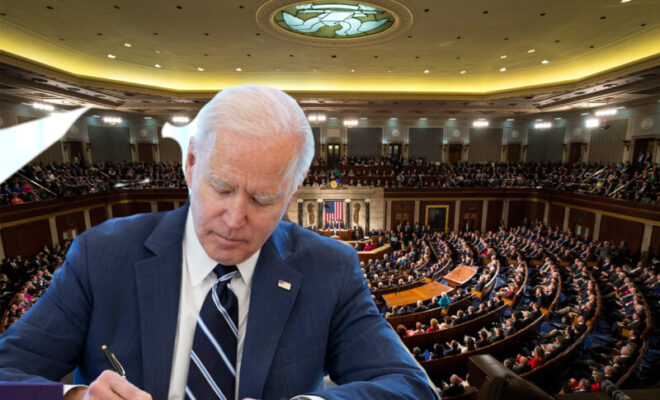US House of Representatives Pass Debt Ceiling Bill, President To Sign

The US Senate has passed a Debt Ceiling Bill to suspend the country’s debt limit until 2025, to avoid defaults. It will now be sent to President Joe Biden.
The US House of Representatives and Senate voted in favor of increasing the debt ceiling, which is the maximum quantity of money the US government can acquire to meet its financial obligations.
The agreement extends the United States’ borrowing limit until January 2025, and according to the Congressional Budget Office, the measure will reduce budget deficits by approximately $1.5 trillion throughout the next decade.
Non-military expenditure is capped In 2024, the measure imposes a spending cap on non-defense domains, such as public education and transportation, before increasing them by 1% in 2025.
According to a CNN report, non-defense discretionary expenditures in fiscal year 2024 will total around $704 billion, of which $121 billion will be allocated to veterans’ medical care. The PACT Act is a piece of legislation that provides assistance to veterans subjected to hazardous materials or environmental risks.
It also retracts $28 billion in unobligated funds from COVID-19 relief programs, but retains $5 billion for the development of COVID-19 vaccines, as well as other vaccines and treatments for the uninsured and the Indian Health Service.
The IRS funds have been eliminated, and $20 billion will be redirected to non-defense programs. Environmental initiatives have been authorized, including the Mountain Valley Pipeline project.
Student loans have been forgiven, and tax credits for renewable energy have been eliminated. Before June 5, Congress must assure that the approved agreement reaches President Biden’s desk.
To prevent a U.S. default, the Senate approved a bipartisan debt ceiling and budget reduction package. It confines spending, suspends the debt ceiling, modifies policies, and imposes automatic 1 percent cuts if Congress fails to pass spending legislation. Mitch McConnell and Sen.
Also Read:- India-Nepal Bilateral Ties Aims To Touch ‘Himalayan Heights’
Tim Kaine attempted to remove the approval of the Mountain Valley Pipeline from the debt ceiling agreement, while defense conservatives argued that military spending was not keeping up with inflation.



